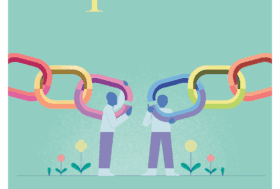Instructional coaching is one of the best bets for professional development for teachers, as it has the biggest impact on pupil progress (Kraft, Blazar and Hogan, 2018). However, there are many barriers to implementing instructional coaching in schools, including time, resources and ensuring that coaches are well trained. This is where AI could really help.
In a groundbreaking advancement, artificial intelligence (AI) can now be used to read and analyse transcripts of teaching videos, providing coaches with valuable data to enhance teacher development. This cutting-edge technology can enable coaches to gain deeper insights into classroom interactions, teaching strategies and student engagement.
By leveraging AI-driven insights, instructional coaches can identify key patterns in teacher-student dialogue, measure questioning techniques, assess wait time and track the use of evidence-based teaching strategies. The result is a data-informed approach that goes beyond subjective observation, offering a clearer, more objective picture of teacher effectiveness. Due to its powers, AI is transforming coaching worldwide, but can it ever replicate the unique human qualities required in coaching? We suspect not.
While AI innovations can help coaches prepare for coaching and also help them hone their focus, coaching is, at its core, a human-centred process. It depends on skills like empathy, deep understanding and the ability to interpret and respond to complex, nuanced contexts. These are qualities that AI simply cannot replicate. While AI excels at solving problems based on patterns, in the context of coaching it lacks true understanding; it can simulate conversation but cannot engage in the collaborative and thoughtful processes that define meaningful instructional coaching relationships.
This does not mean that AI has no place in instructional coaching. Indeed, if used properly, it enhances coaching effectiveness, as it provides coaches with guidance and tools which help them make the most of the time they are given with their coaches. For example, if a teacher and their coach have been working on wait time when cold calling, the AI can provide details on the length of the wait time, so that more time and energy can be spent by the coach on thinking about the probing questions they may ask the teacher to help make their mental model visible.
In addition, traditional classroom observations, while valuable, can be limited by human perception and bias. AI-powered transcript analysis offers a consistent, scalable, and objective approach, enabling instructional coaches to tailor feedback and professional development to individual teacher needs.
‘This technology doesn’t replace human coaching—it enhances it,’ said Professor Haili Hughes, Director of Education at IRIS Connect. ‘By providing clear, actionable data, AI empowers instructional coaches to have more meaningful conversations with teachers, leading to improved teaching practices and better student outcomes.’
Dr Haili Hughes is Director of Education at IRIS Connect and a professor of teacher coaching and mentoring at Academica University of Applied Sciences. She has written several education books.
Andy is the founder of IRIS Connect and a regular speaker at professional learning events. He is passionate about bridging the gap between what the research shows about effective professional development and the practical delivery of impactful learning interactions. His journey began at the University of Sussex with groundbreaking work on the use of video in initial teacher training and culminated in the development of a web based platform to enhance teachers’ reflection and collaboration. Since founding the company Andy has worked around the world supporting effective teacher development, and has been involved in many inspiring educational projects and research.






